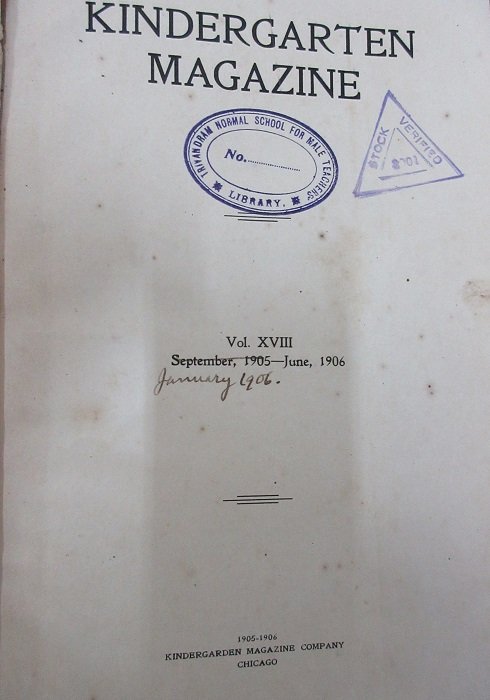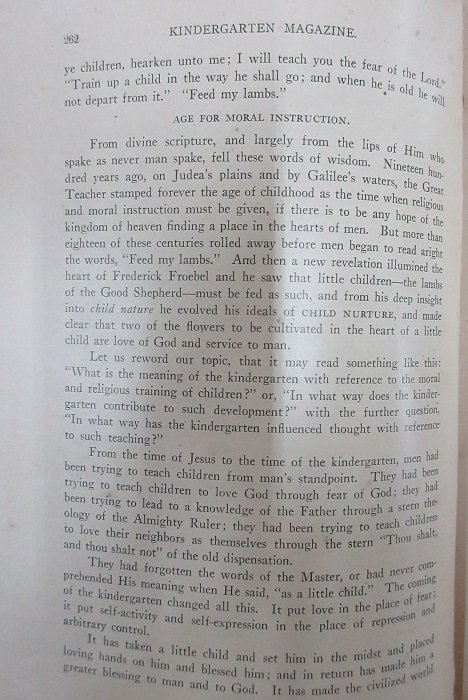Curio Critique # 9: Soul-based education!
| Sl. No. | Curio Book Title | Year of Publication |
|---|---|---|
| 9 | Kindergarten Magazine Vol XVIII September 1905 to June 1906 | 1906 |
Curio Book

Curio Reference
Soul or Atman is a metaphysical and spiritual concept for the Hindus, and it is invariably discussed in Indian scriptures with the concept of Brahman. The first article of the January 1906 edition of the Kindergarten Magazine has a curious title : “The Kindergarten and Soul Culture” prompting readers in India to grapple with the intended meaning of ‘soul’ in a magazine published in America in the twentieth century.

Related References
The entry on Christianity in Encyclopaedia Britannica makes a reference to soul :

Human beings seem always to have had some notion of a shadowy double that survives the death of the body. But the idea of the soul as a mental entity, with intellectual and moral qualities, interacting with a physical organism but capable of continuing after its dissolution, derives in Western thought from Plato and entered into Judaism during approximately the last century before the Common Era and thence into Christianity. In Jewish and Christian thinking it has existed in tension with the idea of the resurrection of the person conceived as an indissoluble psychophysical unity.
The article, ‘The Kindergarten and Soul Culture’ also goes on to discuss the age for moral instruction:


Robert Ivermee’s Secularism, Islam and Education in India, 1830-1910 refers to the Dufferin administration’s attempt to provide moral instruction and identified a singular lacuna which continues to hamper the rendering of Moral education in India even today:

Dufferin’s administration initiated India-wide discussions on the most effective means for improving moral instruction in Indian schools and colleges. During the course of 1888, interested European and Indian parties submitted opinions to provincial governments on the subject. Extensive agreement was expressed with the contention that more should be done for the moral education of Indian youth. On the question of means, however, opinions differed. While general support was offered for many of the Government of India’s December 1887 proposals tending towards the greater regulation of student conduct, the government was widely observed to have left one crucial question untouched: how far could the morality of students in state schools and colleges realistically be improved in the absence of religious education? P112.
Though not taught as a separate subject. Moral education is introduced through languages and literature in schools and colleges. But teachers in India occasionally encounter irresponsible behaviour of students. In fact, the right way to inculcate proper moral values is still elusive for many teachers in India. The following ten practical ways suggested by Becky Sweat, appears to be worth emulating:
1. Model good values
2. Apologize to your children when you make mistakes
3. Use everyday experiences as a springboard for conversation
4. Read the Bible with your children
5. Share your personal experiences
6. Hold your children accountable for their mistakes
7. Don’t let your children take the easy way out of challenges
8. Involve your children in encouraging and helping others
9. Monitor television viewing and Internet use
10. Applaud good behaviour
Curio Quest
Is education of the soul, same as moral education? Should we introduce children in schools to belief in God?
